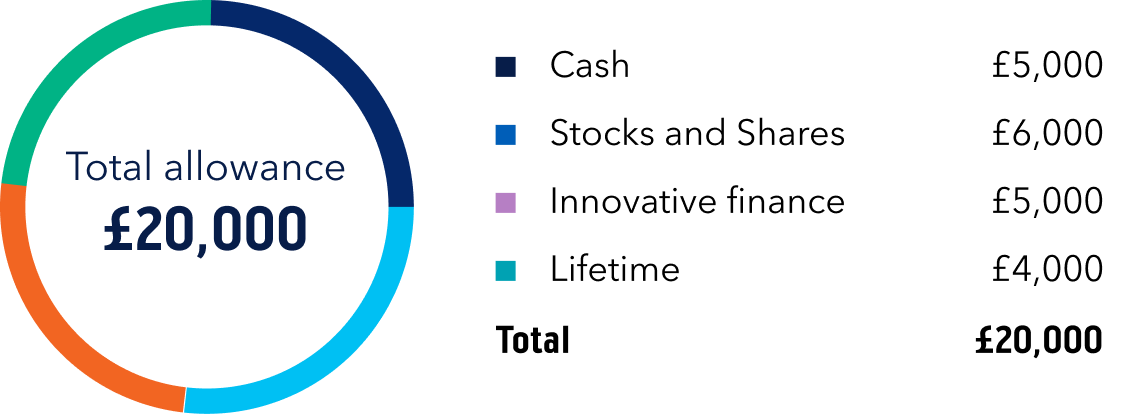Go paper-free
Amend paper-free preferences for your statements and correspondence.
An ISA is an Individual Savings Account. It’s a tax-efficient way to save and invest your money.

Each tax year, the Government decides the maximum you can save into your ISA or ISAs. (The tax year runs from 06 April to 05 April the year after.) Right now, the ISA subscription limit is £20,000. You can hold different types of ISAs at the same time and pay into more than one (so long as you don’t exceed £20,000 overall) – but each ISA type has its own maximum limit.

You can have multiple ISAs of each type with us, except for cash ISAs. You can only pay into one Bank of Scotland cash ISA per tax year.
There are several types of tax that can impact your returns from investments or interest earned on savings. ISAs can help you make sure you’re not missing out on any tax efficiencies.
We have resources to help you understand what tax you might owe, and how an ISA could help.
The tax year ends on 05 April. After this date, many of your annual tax allowances will reset. This includes the amount you can contribute to an Individual Savings Account (ISA). This also includes capital gains, dividend and personal savings allowance. Any unused ISA limit does not roll over to the next tax year. If you don’t use it by 05 April, you lose it for that tax year. Any funds added after then count towards the new tax year.
UK residents aged 18 or over can apply for a cash ISA and/or a stocks and shares ISA. If you’re a Crown employee who lives overseas (like a soldier or a diplomat), you can also apply.
You can subscribe up to £20,000 per tax year in your ISA. If you exceed this limit across all your ISAs in one tax year, it is your responsibility to take action. If product terms allow, you can take the over-subscribed amount out of an ISA account. Otherwise, discuss this with your ISA provider(s). They’ll work to fix the issue with HMRC for you.
Yes. You can transfer both your cash ISA and your stocks and shares ISA to another provider, although you may be charged a fee if you break the terms of the product i.e. fixed early withdrawal.
If you’d like to make a transfer, choose one of these options:
You can, but only with some of our ISA accounts.
With a flexible cash ISA, you can replace funds, but you need to do it in the same tax year in which you took the money out.
With fixed-rate cash ISAs, you cannot withdraw funds from the account without closing the account fully and you will be charged. You can also only add funds within the first 30 days.
For our variable rate cash ISAs and stocks and shares ISAs, you need just £1 to get started. Then you can add funds later, when you’re ready.
But for an investment ISA, you’ll need a £500 lump sum or to set up a £50 monthly direct debit to get you going.
A variable rate ISA offers you a rate of interest that can go up and down, but with easy access to your money, which you can withdraw free of charge.
With a fixed rate ISA, you know in advance what your interest rate will be for a defined term. This may help you get a higher fixed interest rate. However, you might face charges for early withdrawal or closure before the end of the term.
If you want to. If you think you’ll want instant access to your money, a cash ISA might be the best choice. But ISAs that require you to leave your money for a set amount of time, like a fixed-rate ISA, will often offer a better interest rate. You can still get your money out if you need it, but you’ll be charged.
Stocks and shares ISAs and investment ISAs let you take money out whenever you like, but you’ll get the best return on them by leaving them for 5 to 10 years minimum.
A few reasons:
Discover our ISA options and choose the one that’s right for you.
Find out how your Personal Savings Allowance (PSA) affects the tax you pay on savings and investments.
Manage your Bank of Scotland cash ISAs here. Renew, transfer or compare.
Bank of Scotland Share Dealing Service is operated by Halifax Share Dealing Limited. Registered in England and Wales No. 3195646. Registered Office: Trinity Road, Halifax, West Yorkshire HX1 2RG. Authorised and regulated by the Financial Conduct Authority under registration number 183332. A Member of the London Stock Exchange and an HM Revenue & Customs Approved ISA Manager.
Bank of Scotland plc. Registered in Scotland No. SC327000. Registered Office: The Mound, Edinburgh EH1 1YZ. Authorised by the Prudential Regulation Authority and regulated by the Financial Conduct Authority and the Prudential Regulation Authority under registration number 169628.